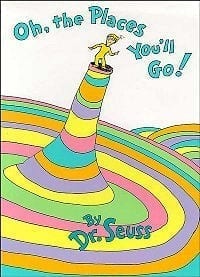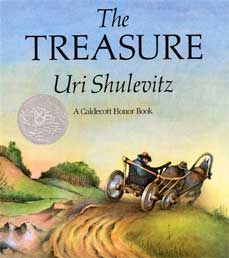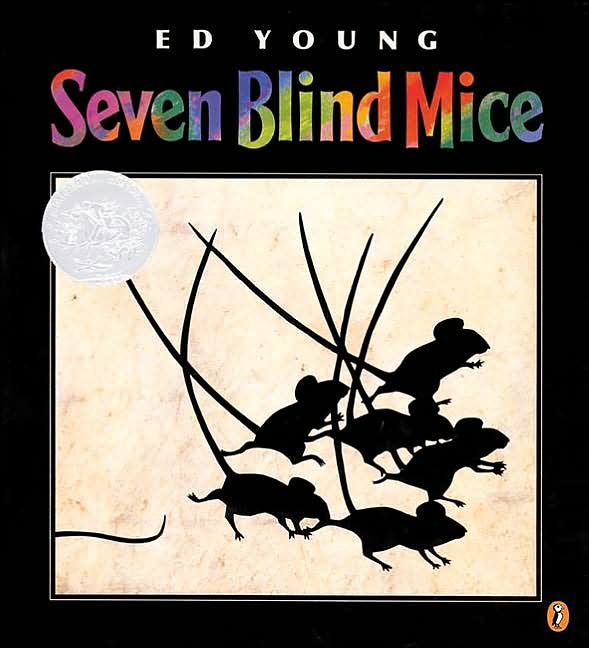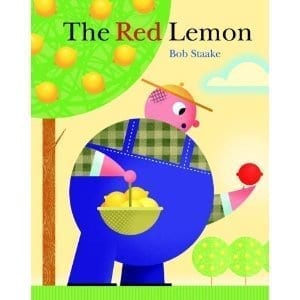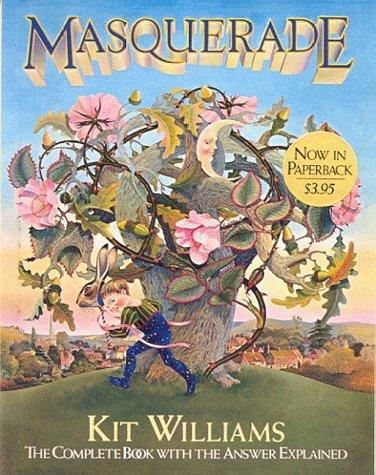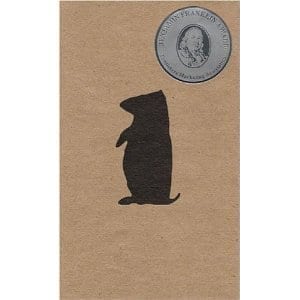“Oh the Places You’ll Go” By Dr. Seuss
This is the story of a generic “you’’ who is venturing out into the world, where he will have ups and downs but will succeed and finally “MOVE MOUNTAINS!” The character travels through mazes like streets, over colorful checkerboard landscapes, into muddy blue “slumps,’’ through heady highs when fame results from success at the game of life, and through dark, lonely confrontations with graveyard-like fears in times of solitude. The idea is that self-determination, recognizing potential, and self-esteem help you to have vision and perspective and make you more likely to achieve your goals.
“The Treasure” By Uri Shulevitz
This Caldecott Honor book tells the story of seeking and ultimately of finding – albeit in a place most unexpected. Isaac lives a difficult life of great poverty and need. Then he has a dream in which a voice tells him to go to the capital city in search of a treasure hidden under the bridge by the royal palace. At first he disregards this; but after the dream repeats itself for the third time, he sets off on a quest. In the end, Isaac’s perseverance and obedience are rewarded. And rather than simply taking, he gives back something in return. “In thanksgiving, he built a house of prayer, and in one of its corners he put an inscription: ‘Sometimes one must travel far to discover what is near.’”
“Seven Blind Mice” By Ed Young
Caldecott medalist Ed Young (Lon Po Po) offers a vibrant variation on the fable of the blind men trying to identify an elephant. Seven differently-hued blind mice approach the “strange something” in their midst on successive days and report their findings to the group. There is a dramatic contrast between reality and the brilliant images “felt” by the sightless rodents. Young’s illustrations allow readers to visualize just how a floppy ear might be mistaken for a fan (“I felt it move!”). The “mouse moral” that concludes the tale: “Knowing in part may make a fine tale, but wisdom comes from seeing the whole.”
“The Red Lemon” By Bob Staake
Farmer McPhee delights in his grove of lemon trees. Each perfect lemon is tasty, tart, and, most importantly, yellow. His pride fairly bursts off the page, as does his outrage when he discovers a red lemon on one of his trees. He cannot imagine a world in which lemonade is red and cupcakes are crimson. In a fit of anger, he hurls the offending fruit across the sea to a distant island. 200 years pass, and McPhee’s prized lemon tree groves are replaced by weeds. But on the island, a vibrant city has grown up around a grove of red lemon trees. As it turns out, these lemons are six times sweeter than yellow ones, and now people travel across oceans and seas to get them. If only Farmer McPhee could have seen past the red color and tried the lemon. Staake creates a fun, dynamic world reminiscent of Dr. Seuss in its sweeping arcs, bright colors, multicolored cartoon people, and effortlessly rhyming text.
“Masquerade: The Complete Book With The Answer Explained” By Kit Williams
This book touched off the treasure hunt of the century with a full explanation of the Masquerade Riddle. For three years, treasure-seekers from both sides of the Atlantic sought a fabulous golden hare buried by artist Kit Williams. Williams had devised an unusual guide to the hare’s whereabouts: a multi-layered riddle that he told in a fairy tale of his own imagining, and presented in dazzling, cryptic, paintings. When the hare was finally unearthed by a British engineer, many were left wanting to know exactly how the clues worked out. Now everyone can see the big picture and know the answer to the riddle. In this paperback reprint of “Masquerade,” the author supplies an illustrated preface that pulls the strings, finds the goal, and points to what’s important. Williams explains how numbers and colors correspond to the intricate ballet, and how the eyes really do see the answer. And of course, here are the magical pages that tell the tale of Jack the hare and his journey to the sun. They are still there to discover, ponder, rediscover, and understand at last.
“The Whistle Pig” By Duck Miller (a pseudonym)
This is a small book with ten short stories, which reference the location of a buried key. This book is in the same vein as Masquerade, only this one takes place in the U.S. The author hasn’t indicated the value of the prize or what the key unlocks. Only the solver of the puzzle will know. The book is very clever. The indirect allusions to people, places and times are perfect for any would-be sleuth. This book has only one solution – yet to be solved – but has many marvelous roads on which to make the journey. If the story is ever solved, this will still be a remarkable book to read and reread simply as literary entertainment.
